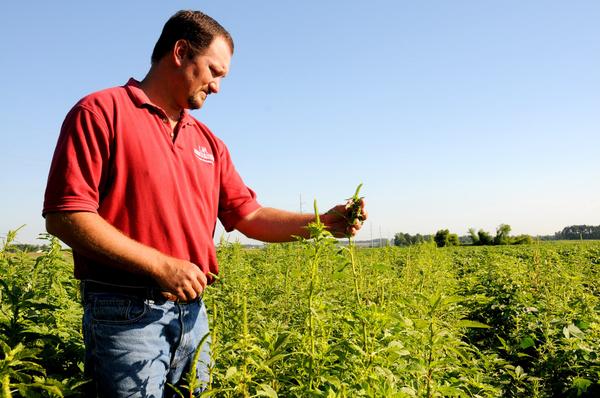|
Australian Herbicide Resistance Initiative (AHRI) insight #82 - New toys for the control of resistant pigweed in the USA
Australia
May 2, 2017

Did you ever receive a present as a child on Christmas Day only to have it broken on Boxing Day?
I was devastated when my cousin bit the head off my GI Joe action doll at the family BBQ. I thought Joe would be tougher than that!
The new toys for the control of resistant Pigweed in the USA are dicamba and 2,4-D. There are new traits in soybean and cotton in the USA that enable these crops to tolerate dicamba or 2,4-D as well as other herbicides.
Monsanto has released the Roundup Ready 2 Xtend® traits in soybean and cotton that includes tolerance to dicamba and glyphosate, and Dow Agro Sciences has released Enlist E3®, a system that includes tolerance by soybean, corn and cotton varieties of a new formulation of 2,4-D as well as glyphosate and glufosinate tolerance.
While it’s fantastic for US grain growers to have new options to help them control glyphosate-resistant Palmer Amaranth (Pigweed), new research by Parsa Tehranchian and Jason Norsworthy from the University of Arkansas and others has found that the toys may break quickly if they’re not treated right.
They exposed susceptible Pigweed to three consecutive low doses of dicamba and voila, three-fold resistance to dicamba.
The dose of dicamba to cause 50% control of Pigweed increased from 111 g ai/ha to 309g ai/ha. This selection with dicamba also caused roughly a 2-fold increase in tolerance to 2,4-D as well.
It’s not nice when a new toy breaks in a short space of time, but perhaps if we know that it’s fragile we may treat it with a little more care.
READ MORE

Weed scientist Jason Norsworthy inspecting Pigweed in a field in Arkansas.
More news from: Australian Herbicide Resistance Initiative (AHRI)
Website: http://www.ahri.uwa.edu.au/ Published: May 2, 2017 |
|
The news item on this page is copyright by the organization where it originated
Fair use notice |